2022-3: A Tipping Point for Music by Trans Artists…?
Ethel Cain, Ezra Furman, Arca, Jane Remover, and more
While 2014 is probably going to remain the most (in)famous “Transgender Tipping Point” due to the Time magazine cover-story, and I’ve called 2021 a tipping point in literature (thinking of fiction by Torrey Peters and Casey Plett, non- by Shon Faye, Gleason & O’Rourke, and re-prints of cult classics from Imogen Binnie, Eileen Myles, et al.), 2022 felt a lot like a tipping point in music. 2021 ended with four instalments of Arca’s Kick series being released across a few days in November & December, a run of hyper-productivity since she released the first of her post-transition albums, Kick i, in 2020. In a parallel timeline where SOPHIE never fell off that roof while staring at the moon, at the start of the year, perhaps she would have released the five albums she was reportedly planning, in that rush of creativity that so often follows getting the correct hormones for the first time in your life.
Musically more conventional but far more challenging in their lyrical content, are albums by Ezra Furman and Ethel Cain who released, to my mind, the towering masterpieces of 2022. Furman (b. 1986) had transitioned in 2021 after more than a decade of gender-fluid presentation onstage, plus an album titled Transangelic Exodus in 2018, and a book on Lou Reed’s Transformer (1972) for the 33 1/3 series, as if we didn’t have enough clues. (Hell, “Take Off Your Sunglasses” has been one of my favourite upbeat trans allegories for almost a decade, and was originally released in 2008). All of Us Flames, her 2022 album, may, however be the most ambitious lyrical statement by any trans artist since Anohni’s I Am a Bird Now (2005), envisaging transition as an almost mystical calling, and dramatizing demands for social acceptance as something more like a call for revolution. To my mind, neither conceit is histrionic or excessively fanciful. Trans people have had a sacred role in countless cultures, over the millennia, and many of us have experienced the fluctuations of dysphoria and euphoria (with or without cyclothymia or manic-depression) that make our darkest days seem like a descent into Hell (when the dominant hormones of our AGAB are at their highest levels?) while the obverse is a rise into the light. We know what it’s like to pass through the Looking Glass to a world that’s both utterly familiar and utterly reversed. We understand better than anyone what it means that a “glamour” was once a word for a spell.
In “Book of Our Names”, “Temple of Broken Dreams”, and “Poor Girl a Long Way from Heaven”, Furman might be looking prophetically toward a restoration of trans people within contemporary religion(s), which isn’t subversive in the long span of history, but entirely consistent with the praise given to ‘eunuchs’ in Isaiah 56:3-5 (Ezra’s Jewish, recall) and in the Sermon on the Mount in the Gospel according to Matthew, 19:12, despite the fecklessness of Christian fundamentalists who clearly haven’t read the Old Testament or New, nor spotted the general principle of the Acts of the Apostles: that they mopped up the various marginalized groups Jesus didn’t get around to in His short life, hence Acts 8: 30-40, in which Philip baptizes an Ethiopian eunuch, implying an endless series of once excluded figures to be eventually welcomed into the kingdom of Heaven. (See my previous post, Trans People in The Bible, or: How to Argue with a Fundamentalist (substack.com), for a lengthier analysis of the above.)
It might have been too obvious for Ezra to invoke the image of “wandering in the wilderness” or being a (secretly) Chosen People (perhaps because Springsteen did all this so well in 1978’s Darkness on the Edge of Town), but “Temple of Broken Dreams” casts trans people thus, describing our place on the periphery as, nonetheless, a place where we can find community when we recognize we inhabit it together, and that ‘…all the lonely pilgrims like me / form a tribe of travellers scattered across the map…’ My personal favourite, “Lilac & Black” imagines a pack of tragic heroines embarked on social revolution…only to remind us that we are accomplishing a kind of revolution every time we go out in public as ourselves and, as with all revolutionaries, there’s a danger of very real violence and death:
‘Tonight, tonight I’m dreaming of my queer girl gang
We who walk this deadly path
And the city that tries to kill us each night
Will soon bow before our wrath, ah-ah, ah-aaah…
We got death stares to ward off enemies
Amulets to ward off fear
And I try to keep count, try to guess the amount
Who will make it through the coming year…’
The premise could be whimsical, like any high-school movie in which surviving your teens is figured as surviving an attack by vampires or zombies, but trans people know that the city really does try to kill a few of us each night. Whenever I hear the line, elsewhere: ‘…the Summer of the Crash / the Winter of survival mode’, I wonder whether she’s talking about some personal crisis or the last-but-one global financial crisis that put my own (faint) hopes of transition on hold, all those years ago, before the combination of the Great Recession, the Global Pandemic, the Rise of the Far Right in the supposedly civilized West, and the hottest years since records began made me think, “If not now, when?!” and, apparently, a lot of other people who spent their lockdowns gender-exploring.
So, Yes, Furman’s first post-transition album is superficially conventional indie-rock in terms of length, instrumentation, chord sequences, and so forth, by contrast with the five-LP KiCk series from Arca, and the late-SOPHIE’s plan for a similar epic but its twelve narratives feel super-charged by the euphoria of self-acceptance after a lifetime of repression. Where her music was once a mishmash of 50s & 60s rock & roll pastiche with dashes of Violent Femmes and The Velvets, there’s a striving for the anthemic rock of Arcade Fire and Springsteen in places, and if there’s a wooziness and psychedelic swirl to the synths and other instruments low in the mix, it recalls the Blue Rose / Elephant Six bands at their peak. Even divorced from the music, most of the lyrics stand up as poetry in Jakobson’s loose, modern sense: ‘language fully charged with meaning’ and the tightness of the versification indirectly strengthens the case of each song through the neat logic by which rhyme locks together with rhyme, as if asserting a timeless truth. Take the crystalline perfection of a single quatrain:
The cis question if we really exist
Sometimes even we've got doubts
But the feminine deferred like a rubbed-out word
Is still passed around from mouth to mouth – hell yeah!
On the same track, she sings ‘We smile and laugh in a photograph / But you know our pretty heads are haunted / We frozen girls in a worn out world / That never once asked us what we wanted’ – an incredibly powerful evocation of the euphoria that we are capable of feeling and expressing that so often draws its strength, dialectically, from the dysphoria we once felt much of the time (when we were ‘frozen girls’ before the hormones unthawed us) and often still do.
To be honest, I might as well just insert a link to Genius.com, here, and let you pick the lyrics that have most resonance for you. Of all the refrains from the album, the one I found myself most often singing when I wasn’t actually listening were: ‘Point me toward the Real, motherfucker / Point me toward the Real / I’ve been lost and I’ve been lied to / Time to try to heal…’ as I walked around the corridors that first term of teaching at a new school, a term before coming out to all my colleagues, and a year before coming out to all my students. I guess a part of me knew that HRT was only the start and I’d need a few more months of building confidence before the real, painful healing began, as in fact it did.
Perhaps your favourite will be “Book of Our Names”, which gives the albums its title: ‘…none of us ashes / all of us flames’, and weaves a myth around the idea of the importance of honouring someone’s chosen name (and burying their deadname) by imagining a missing book of the Torah dedicated to trans people some of whose names are known only to Yahweh since they never got to speak them aloud, and so many of us don’t yet have the right to be buried under those names. Perhaps it’ll be “Ally Sheedy in The Breakfast Club”, which recaps the plot over one of the album’s more wistful, non-anthemic tunes, before naming her quasi-Goth character as the image of ‘…the teenage girl I never got to be,’ which is a line to shatter your heart into pieces, as you imagine your own.
Like Ezra, Hayden Silas Anhedonia (b. 1998) seems to have had a similar burst of euphoria-fuelled creativity since ditching her male nom de guerre for the Ethel Cain persona, assumed by many to be her birth-name (Come on! Anhedonia?! With an umlaut?!?). Between 2019, when she began her transition, and Summer ’22, Cain released three EPs, two collections of “unreleased” demos, and one double-album, adding up to almost four hours of music. The album was originally conceived as a two and a half hour epic to accompany a feature-film about the eponymous Preacher’s Daughter, who escapes a youth of abuse and isolation to go on the road with a handsome stranger who subsequently murders and cannibalizes her. The fact that Ethel Cain (the character and the artist using the persona) is trans is everywhere and nowhere in the lyrics, whose overall arc is hard not to read as an allegory for transition and/or the tragic ending of many trans lives, even if there are few individual lines that point toward that interpretation.
Body horror has a well-documented appeal for trans people, offering catharsis to those who do feel trapped (however cliché) and willing to do what many conservative cis people consider “mutilation” for the sake of self-actualization. Cain leans into these tropes but there’s more going on: in the final two tracks, the protagonist dies, ascends to Heaven, views her body being eaten by her former lover, and also imagines her mother’s response to disappearance, in a chronologically confused manner, as if death is, itself, an escape from linear time. An actual movie might make sense of the literal events implied by the lyrics but that’s unimportant because they do double duty as allegory. In the second verse, Cain might as well be singing about trans person’s repression of their emotions, and need to escape an unsupportive family:
We all know how it goes
The more it hurts, the less it shows
But I still feel like they all know
And that’s why I can never go back home
And I spend m------y life
Watching it go by from the sidelines…
Within the narrative, she explicitly refers to the moment her character resists her inevitable death, but the listener can’t help but hear her (or his) own resistance to a lifetime of pressure to conform to heteronormative roles:
And God, I've tried, but I think it's about time I put up a fight
But I don’t mind ’cause that’s how my daddy raised me
If they strike once then you just hit ’em twice as hard
But I always knew that in the end no-one was coming to save me
So I just prayed and I keep praying and praying…
CHORUS: If it’s meant to be then it will be…
All through my first Summer on hormones, I heard those last two lines as my private, inner prayer that transition would be all I’d hoped it would be, while keeping in mind Hayden’s gloss on the next line (‘I forgive it all as it comes back to me…’) that her character’s coming to terms with all the events that led her to the basement where her body’s hidden, much as I’d spent the previous year (roughly, Summer 2021 – Summer 2022) filling a novel-length therapy journal with accounts of all the violence, assaults, and general misfortune that kept me from believing transition would ever be possible; certain, instead, it would be suicidal.
On the final track of the album, Cain confuses time and identity even more in a single verse, whose lines bleed together with no pause, hence the prediction that she’ll become yet another cautionary tale – ‘When my mother sees me on the side / Of a milk carton in Winn-Dixie’s dairy aisle / She’ll cry and wait up for me’ – which is followed immediately by a fantasy of future love-making that has ended before the song began: ‘We'll make love in your attic all night / Euphoric in some strange delight / I’m happier here because he told me I should be.’ Only that one word, ‘euphoric’, would register with trans listeners who didn’t already know Cain’s biography but it’s doubly poignant because it reminds such listeners that to find love, for us, often does require a symbolic death, either on our own terms, or on the terms of family and friends who now consider us entirely dead to them – not just the person we’d willingly leave behind. The song’s not solely about erotic love, though, nor the album itself, because the final lines privilege maternal and filial love. After a skyscraping guitar solo, and multi-tracked chorus that weaves complex counter-melodies seemingly spiralling upward to speed Ethel to Heaven, the instrumentation subsides to a single acoustic guitar, strummed quietly but intensely as if ticking away the final seconds of life, in which she’s desperate to make amends:
Found you just to tell you that I made it real far
And that I never blamed you for loving me the way that you did
While you were torn apart
I would still wait with you there…
The following lines haven’t yet failed to make me cry the kind of hot cathartic tears only HRT has ever granted me in my life, whether I’d been hollering along to the song for the previous few minutes, or even when I haven’t:
Don’t think about it too hard
Or you’ll never sleep a wink at night again
Don’t worry ’bout me and these green eyes,
Mama, just know that I love you
And I’ll see you when you get here.
Treated as an extended metaphor, someone’s child dies in the course of transition, perhaps in pursuit of the love that they need, and it might seem like something that no-one could come back from, but it doesn’t, in fact, preclude loving your first love, and after the death that is transition (or the ascent into Heaven, in the allegory that I’m reading it as, here) you’re reunited with the maternal body, in a sense that may not be accepted by religious conservatives or transmisogynists but, to those of us who understand, is as profound as any religious narrative of rebirth.
So, there you have it: 2022 was the year that trans women reclaimed religious narratives from the bigots and zealots who tried to erase us for centuries. The year that we became the people who were trying to point the way toward the future by re-purposing Judaeo-Christian narratives rather than using delusions of Rapture to excuse environmental destruction.
But is Preacher’s Daughter truly redemptive in the sense that it gives life back its value? Is All of Us Flames? Are we incapable of imagining (temporary) ecstasy and euphoria for trans people without the possibility of early, often violent death? Are we incapable of imagining a world in which we can actually live, and marry, and raise children, and age, and die of natural causes? I’ve brushed over the cannibalism aspect of the former narrative – which you wouldn’t necessarily spot if you didn’t know it was there without reading the lyrics closely, or hadn’t read any interviews – but it took a couple of months of listening for it to occur to me that what seemed a natural narrative development as if, Yes, of course a trans person would go to extremes within the genre to reflect the horror of being one of the 0.5%, should never have been naturalized to the extent that it felt too logical to interrogate. Cannibalism is the ultimate taboo: it’s a kind of double murder that reduces a human to a source of food as well as taking away their life, or triple if you consider the self-murder through kuru, the neurodegenerative disease caused by ingesting cerebral and spinal matter. For the strictest adherents to the gender binary, whether religious fundamentalists, Fascists, Republicans, White Supremacists, what have you: sex with a trans person is taboo, being a trans person is worse, and having sex as a trans person may be the worst of all (since the cis person is implicitly violated whether or not they’re a passive recipient, thereby violating the very notion of heterosexuality). It makes perfect sense that cannibalism would encode this triple violation, being the act of taking-into-ones-body-the-most-taboo-flesh-of-all? Consuming same-sex human flesh, queers the male cannibal, just as having sex with a trans woman queers a cis man in the eyes of society.
When I’m not sobbing profusely – but cathartically, enjoying how much the album validates my transition by opening the floodgates in a way unimaginable pre-HRT – I find myself wondering what it is about it musically that makes it all so familiar, like the home I’ve always wanted to reach where shamelessly catchy and anthemic rock sits alongside Goth, Slowcore, and Dark Ambient. Arguably, there’s something quietly subversive about the way the straight up rock meshes with much heavier production that recalls early Low, or The Sisters of Mercy in their own transition from danceable post-punk to reverb-heavy, arena-ready synth-rock. Ethel says there’s an element of “Christian rock” (harmony rich choruses and massive guitar crescendos, I assume), her beloved Florence + the Machine, but she’s quiet about the amount of Springsteen (dropping clues only in the poster on her bedroom wall); in particular, “House in Nebraska”, for me, literally fuses the location of Springsteen’s darkest and sparsest album, the central image of one of his biggest hits (“Dancing in the Dark”), and the location of his most punk album (his claim), Darkness on the Edge of Town, whose lyrics allude to his long-concealed depression but sound to these ears (and Ezra’s? and Ethel’s?) as a trans allegory with lyrics like ‘…everyone’s got a secret, son / Something they just can’t face / Some folks spend their whole lives trying to keep it / They carry it with them every step they take.’
It might seem peculiar on an album apparently aiming for mainstream success to have a sequence of lyric-free tracks amounting to a quarter of an hour toward the end (one with vocals as heavily processed as you can go toward the sound of mud squelching without becoming totally indecipherable). This, however, is the unsayable, the inexpressible, the sonic equivalent of the taboo, the conceptual lacuna, the uncanny space we occupy in the imagination of cis-het bigots… until we escape, reclaiming mainstream Rock arrangements with so much more euphoria for being hard-earned after a long spell underground.
I haven’t had time to fully digest all of the trans & non-binary artists I’ve discovered across the course of 2022 and 2023. Check out Iceboy Violet, Lauren Auder, Maria BC, and Katy Kirby, as well as Anohni’s long awaited reunion with The Johnsons, and only the second album under her chosen name. The last few months of 2023 have seen Jane Remover on repeat, specifically her pre- and post-transition albums, Frailty (2021) and Census Designated (2023), which arrived a little too late to make it into End-of-Year lists but epitomizes the new wave of Shoegaze popular among people born this side of the millennium who may not have yet heard the My Bloody Valentine and Slowdive records by their spiritual grandparents. Jane, for me, pushes a number of different buttons: the first being the sound of indie records from my mid-teens just as Grunge was waning (with its superficial masculinity disguising a vulnerable core) and Post-Rock was a couple of years in the future (with its sonic oblivion providing an escape from corporeality for this particular trans girl in her first serious spell of gender-exploring). Another button is pushed by the choppy, frenetic, hyperactive production of a youngster mucking around with cracked versions of GarageBand and ProTools that had once been used with a sense of chin-stroking reverence by the few who could afford them but enabled a manic mishmash of genres and ideas as soon as they became free, online, and Gen Z either threw out the rulebook or never discovered there was one. I don’t love it but, with a layer of cynicism and self-importance stripped away by E, I’ve found myself open to the musical giddiness of it all, somehow matching the mood of “oestrogenic second puberty.” For me, Jane’s soundtracking the experience of young trans people who are no stranger to the deep sadness of dysphoria, but haven’t had to endure decades that can sap the will, allowing them to get on with the business of just enjoying their gender.





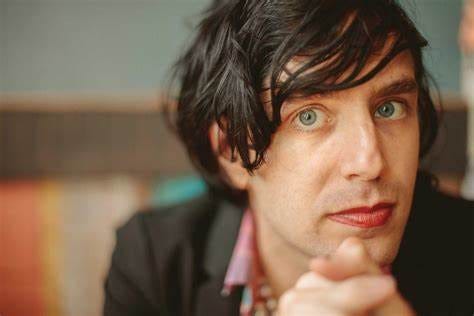

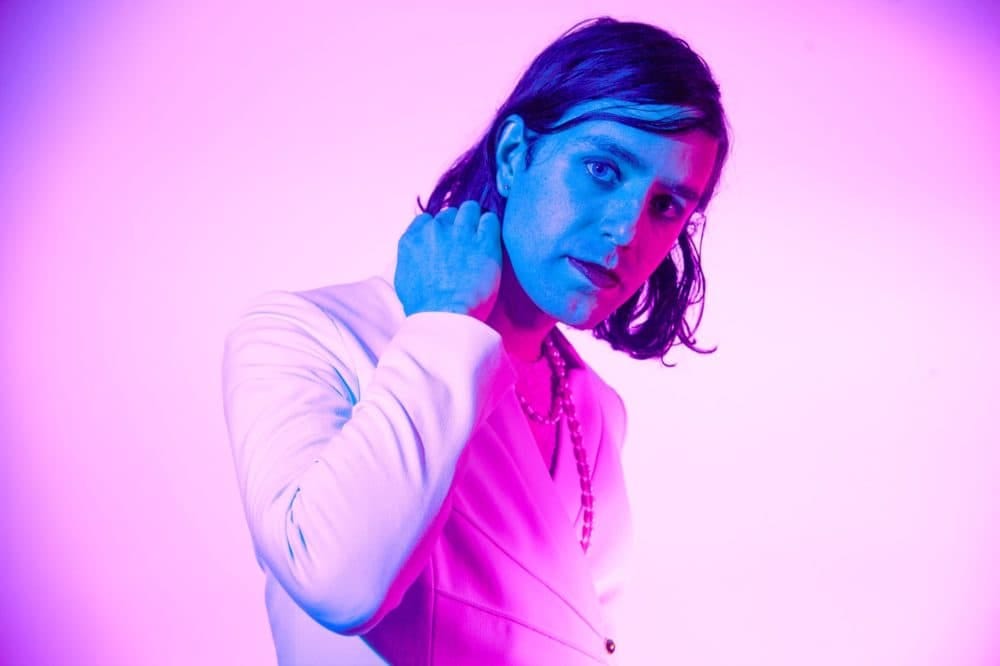

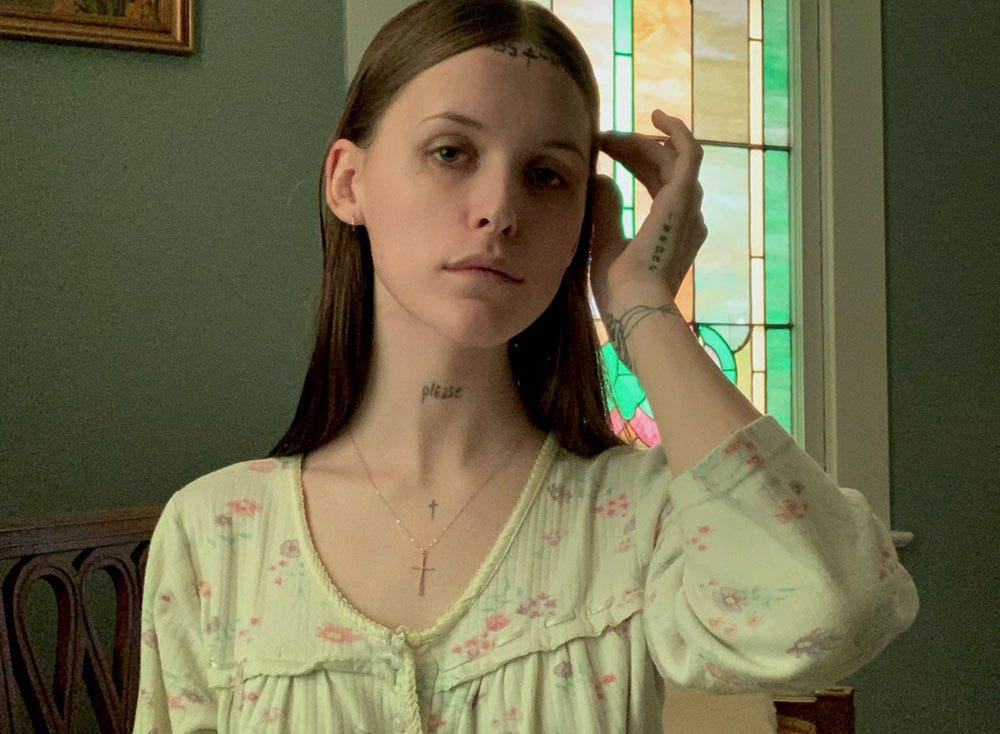

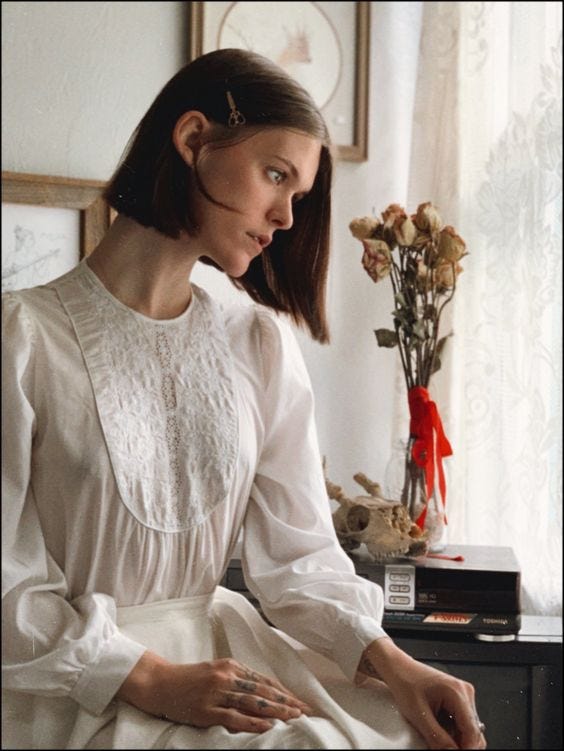
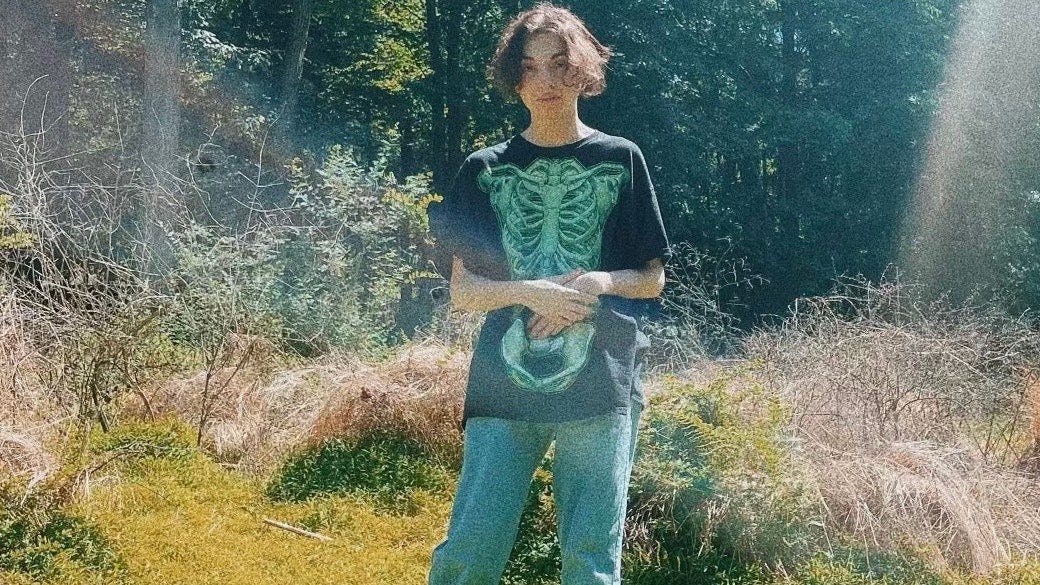
Glad you liked them! I hear so many lines I want as tattoos and I am NOT a tattoo person : )
I really enjoyed this - now I have a lot of music to listen to!